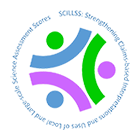The SCILLSS project brings together a diverse group of states, researchers, consultants, technical experts, and evaluators. Through virtual and in-person meetings and interactive online workspaces, we promote consistent communication, accessibility, and universal understanding of project activities, progress, and goals for all SCILLSS partners.
State Partners
SCILLSS focuses on a consortium of three states: Nebraska, Montana, and Wyoming. These state partners work in collaboration with project partners to identify areas of need in their science assessment systems and benefit from both overarching project developments as well as state-specific Theories of Action (ToA) and validity frameworks. Through their participation in this project, state partners gain greater clarity and capacity to interpret and utilize science assessments to produce information that is meaningful to all stakeholders. State partner participation is also an important service to other states, as SCILLSS resources and tools are meant to be accessible and generalizable to any state.
SCILLSS state partners include:
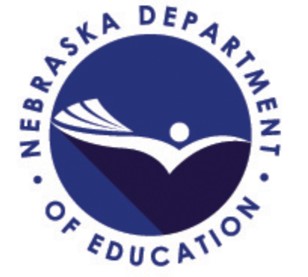 |
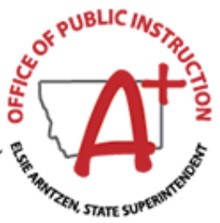 |
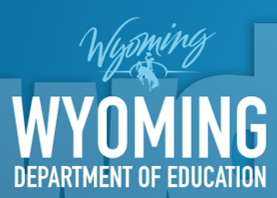 |
| Nebraska Department of Education |
Montana Office of Public Instruction |
Wyoming Department of Education |
For additional information related to each state’s current science assessment, please follow the links below:
Project Partners
SCILLSS project partners provide the expertise and management capacity to accomplish the technical, research, evaluation, analysis, and reporting tasks for this project. Project partners provide diversity in staff, experience, and perspective, and include a woman-owned small business and a not-for-profit organization.
SCILLSS Project Partners include:
 edCount, LLC is a federally-registered woman-owned small business and a certified Woman-owned Business Enterprise. Since its founding in 2003, edCount has provided direct or advisory services in K-12 assessment to all 50 states and seven US territories. edCount staff members have extensive, unbiased experience assisting SEAs and LEAs with the evaluation of their assessment systems and their technical documentation; the establishment of processes and procedures for evaluating assessment systems; the provision of professional development; external and ED reporting; and the coordination of multi-state collaborative work groups. edCount has designed and conducted dozens of studies to evaluate the validity and alignment of assessment systems, as required by ESSA. These studies have involved the content, internal structure, external relationship, response process, and consequential sources of validity evidence.
edCount, LLC is a federally-registered woman-owned small business and a certified Woman-owned Business Enterprise. Since its founding in 2003, edCount has provided direct or advisory services in K-12 assessment to all 50 states and seven US territories. edCount staff members have extensive, unbiased experience assisting SEAs and LEAs with the evaluation of their assessment systems and their technical documentation; the establishment of processes and procedures for evaluating assessment systems; the provision of professional development; external and ED reporting; and the coordination of multi-state collaborative work groups. edCount has designed and conducted dozens of studies to evaluate the validity and alignment of assessment systems, as required by ESSA. These studies have involved the content, internal structure, external relationship, response process, and consequential sources of validity evidence.
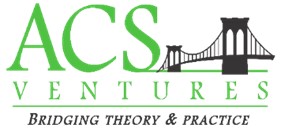 ACS Ventures, LLC (ACS) is an assessment consultation services organization that focuses on design, quality assurance, and operational support for programs in education (e.g., PK-12, admissions, adult education, language testing), and credentialing (e.g., licensure, certification, registration, and assessment-based certificates). This work includes psychometric consultation; program design consultation; evaluation and auditing programs; validation framework development; and test development and validation projects (e.g., practice/job analysis, blueprint development, item development, item and form analysis, forms assembly, standard setting and equating, security analysis) for small- and large-scale testing programs of national and international scope. ACS’s staff members have designed and implemented a number of psychometric evaluations of educational and credentialing testing programs for national and state level programs.
ACS Ventures, LLC (ACS) is an assessment consultation services organization that focuses on design, quality assurance, and operational support for programs in education (e.g., PK-12, admissions, adult education, language testing), and credentialing (e.g., licensure, certification, registration, and assessment-based certificates). This work includes psychometric consultation; program design consultation; evaluation and auditing programs; validation framework development; and test development and validation projects (e.g., practice/job analysis, blueprint development, item development, item and form analysis, forms assembly, standard setting and equating, security analysis) for small- and large-scale testing programs of national and international scope. ACS’s staff members have designed and implemented a number of psychometric evaluations of educational and credentialing testing programs for national and state level programs.
 The Pacific Institute for Research and Evaluation (PIRE) is a 501(c)3 independent nonprofit organization founded in 1974. For over 30 years, PIRE has been a leading private, not-for-profit research institute conducting studies in the areas of school-based interventions, child development, public health, substance abuse prevention, and related problems. PIRE has a Federal-wide Assurance (#FWA00003078) on file with OHRP (Office for Human Research Protections), which formalizes the institution’s commitment to protecting human subjects. PIRE is committed to cultural competence and diversity in staffing, in designing research and in planning technical assistance. PIRE researchers and program directors publish more than 200 peer-reviewed journal articles annually.
The Pacific Institute for Research and Evaluation (PIRE) is a 501(c)3 independent nonprofit organization founded in 1974. For over 30 years, PIRE has been a leading private, not-for-profit research institute conducting studies in the areas of school-based interventions, child development, public health, substance abuse prevention, and related problems. PIRE has a Federal-wide Assurance (#FWA00003078) on file with OHRP (Office for Human Research Protections), which formalizes the institution’s commitment to protecting human subjects. PIRE is committed to cultural competence and diversity in staffing, in designing research and in planning technical assistance. PIRE researchers and program directors publish more than 200 peer-reviewed journal articles annually.
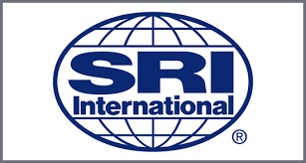 SRI International is a research institute conducting client-sponsored research and development for government agencies, commercial businesses, foundations, and other organizations for 66 years. SRI Education is a leader in providing professional development for teachers and designing formative and summative assessments using evidence-centered design, universal design for learning, and state-of-the-art assessment models aligned to Common Core standards. SRI assessment experts are experienced in generating high quality assessments and scoring rubrics, documenting the development processes, and conducting validation studies to support accurate decisions. This work is accomplished in partnership with government and educational agencies, foundations, commercial firms and international clients around the world.
SRI International is a research institute conducting client-sponsored research and development for government agencies, commercial businesses, foundations, and other organizations for 66 years. SRI Education is a leader in providing professional development for teachers and designing formative and summative assessments using evidence-centered design, universal design for learning, and state-of-the-art assessment models aligned to Common Core standards. SRI assessment experts are experienced in generating high quality assessments and scoring rubrics, documenting the development processes, and conducting validation studies to support accurate decisions. This work is accomplished in partnership with government and educational agencies, foundations, commercial firms and international clients around the world.
Expert Panelists
To ensure the overall quality of SCILLSS processes and deliverables, a team of expert panelists convene at key points throughout the project to articulate feedback, commendations, and recommendations for project and state partners. Project leadership matches panelists’ experience and expertise to the development of specific deliverables to yield informed, active, and formative feedback from panelists that can be used to improve project outputs.
The SCILLSS expert panel includes:
 |
Jill Wertheim, Ph.D., is a research associate at Stanford University’s Center for Assessment, Learning, and Equity (SCALE). Dr. Wertheim has ten years of experience in research, development, and evaluation of earth science education curricula, assessments, standards, and programs. At SCALE, Dr. Wertheim has focused on examining how performance assessments can be used to measure students’ reasoning with evidence and to model the vision of science learning from A Framework for K-12 Science Education. |
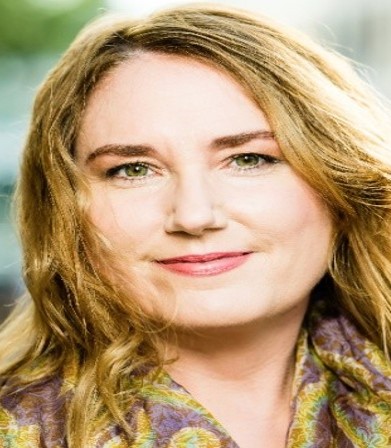 |
Kristen Huff, Ph.D., currently serves as Vice President of Assessment and Research at Curriculum Associates. She is a member of the board of directors for the National Council of Measurement in Education and serves as associate editor for Applied Measurement in Education. Dr. Huff has nearly two decades of experience in standards-aligned assessment design, evaluation, educational measurement, and psychometric research. |
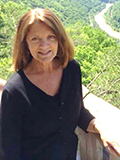 |
Suzanne Lane, Ph.D., is a professor in the Research Methodology Program at the University of Pittsburgh. She has had several articles published in academic journals such as the Journal of Educational Measurement, Applied Measurement in Education, and Educational Measurement: Issues and Practice. Her primary areas of expertise include educational psychology, educational measurement and testing, technical and validity issues related to large scale assessment programs, and the effectiveness of education and accountability programs. |
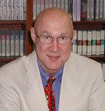 |
Richard Lesh, Ph.D., is a professor of Learning Sciences, Cognitive Science, and Mathematics Education at Indiana University Bloomington. He is also affiliated with the Caput Center for Research and Innovation in STEM Education at the University of Massachusetts Dartmouth. Dr. Lesh has published numerous journal articles and book chapters and his research centers around assessment design in science and mathematics education, and computer-based curriculum development. |
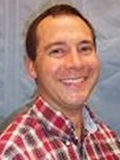 |
Mark Lyford, Ph.D., is a professor and the Director of the Life Sciences Program at the University of WY, as well as Special Assistant for Assessment and Accreditation for the Office of Academic Affairs. His main area of expertise is science education; specifically, he researches the impact of various pedagogical, curricular, and assessment practices on student learning. Dr. Lyford’s current research projects focus on institutional models for scientific literacy, and incorporating ‘desirable difficulties’ into classroom pedagogy. |
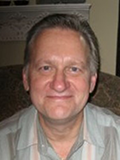 |
Ric Luecht, Ph.D., is a professor of Educational Research Methodology at the University of North Carolina at Greensboro, as well as a Senior Research Scientist with the Center for Assessment Research and Technology. Dr. Luecht specializes in psychometrics, item response theory, item design and analysis, test scoring, assessment engineering, computer-based testing technologies and systems design, automated test assembly, computerized-adaptive testing, and multistage testing. |
 |
Paul Nichols, Ph.D., currently serves as Senior Director and Distinguished Research Scientist at ACT, Inc. His work focuses on integrating recent findings in learning science, assessment, and measurement, and technological innovations with applied studies and assessment design across the ACT assessments. Dr. Nichols applies his expertise across several areas of assessment and learning research to support innovative assessment development and implementation, and leads the creation of interpretive and use arguments as well as the evaluation of validity arguments. |
 |
Pamela Paek, Ph.D., is a researcher specializing in educational assessment, educational policy, and mathematics education at ACT, Inc. She has published several reports, journal articles, and book chapters over the course of her career. Her areas of expertise include educational assessment and measurement, mathematics education, research methods, evaluation research, psychometrics, student achievement, metacognition, quantitative methodology, and professional development. |
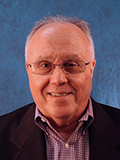 |
Jim Pellegrino, Ph.D., currently serves as co-director of Learning Sciences Research Institute and Distinguished Professor of Liberal Arts and Sciences and Education at the University of Illinois at Chicago. He has authored or co-authored over 270 journal articles, books, or book chapters in the fields of cognition, instruction, and assessment, and has supervised many large-scale research and development projects. His areas of expertise include cognitive science, psychometrics, educational technology, instructional practice, and educational policy. |
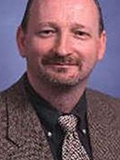 |
David Pugalee, Ph.D., is a professor in the College of Education at the University of North Carolina at Charlotte, and serves as the Director of the Center for Science, Technology, Engineering, and Mathematics Education. His primary areas of expertise include mathematics and science education, curriculum development, and professional development. Dr. Pugalee has 34 years of experience as an educator, and has served as the principal investigator or co-principal investigator for several professional development projects. |
Key Personnel
SCILLSS key personnel represent an essential combination of expertise in principled-design, measurement, assessment literacy, and classroom practices to support implementation of the project. These team members provide leadership and technical expertise to project activities to ensure that SCILLSS outputs are research-based, theoretically sound, and aligned with standards, state needs, and the SCILLSS Theory of Action.
The SCILLSS key personnel include:
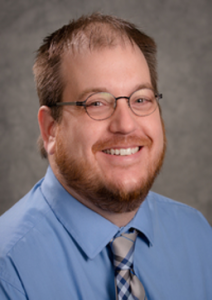 |
Senior Advisor and State Lead: Jeremy Heneger serves as the Director of Assessment and previously served as the Assistant Director for Statewide Assessment for the Nebraska Department of Education for six years. During that time, he oversaw test development, the alternate assessment program, classroom assessment supports, and accessibility supports. Mr. Heneger has played a key role in the development of the state’s new assessment system: Nebraska Student-Centered Assessment System (NSCAS). He is working on his Doctorate in Education Leadership from Doane University, and previously served as a Curriculum Director and a high school English language arts teacher for several Nebraska districts. |
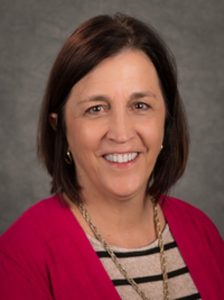 |
Nebraska Department of Education Enhanced Assessment Grant Coordinator: Rhonda True, M.A., served as an educator in Lincoln Public Schools for more than 31 years. She became principal of Pershing Elementary School in 2012 and before that was assistant principal at Prescott Elementary School and instructional coordinator at Elliott Elementary School. She taught at Lux Middle School, and Rousseau and Sheridan elementary schools, and in Grand Island Public Schools. She joined the Nebraska Department of Education in 2017 to assist in the coordination and facilitation of the SCILLSS project. |
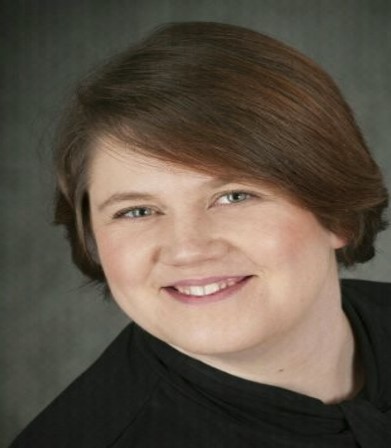 |
Wyoming Department of Education Assessment Supervisor: Jessica Steinbrenner, M.S., is currently working on a M.A. in School Counseling through the University of Texas at Tyler. She earned her M.S. in Mathematics with an emphasis in Mathematics Education at Montana State University and her B.A. in Secondary Education with an emphasis in Mathematics at the University of Wyoming. Jessica taught high school mathematics in Wyoming for six years prior to joining the department. Jessica lives in Cheyenne with her loving husband and two sons ages six and two. She enjoys hiking, camping, and fishing in Wyoming’s majestic mountains. |
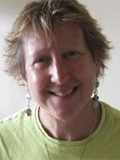 |
Wyoming Department of Education Supervisor of Standards: Barb Marquer, M.Ed., has been a consultant with the Wyoming Department of Education for one year. She earned her M.Ed. in Learning and Technology from Western Governors University. Previously Barb was an instructor and director of the Wyoming National Guard’s STARBASE program, a middle school science teacher, a stay at home mom, and a registered nurse. |
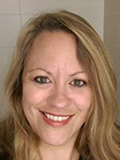 |
Wyoming Department of Education Director of Standards and Assessment: Laurie Hernandez, M.Ed., earned her B.A. in Elementary Education at the University of Wyoming and an M.Ed. in Educational Leadership from Northern Arizona University. Ms. Hernandez loved being a classroom teacher in Arizona for 14 years, where she taught grade 5 students for two years, middle school science for 12 years, and summer school math for four years. Ms. Hernandez is interested in helping teachers across Wyoming integrate fun and engaging STEM lessons and provide real-world experiences for their students. |
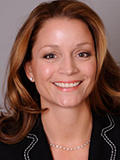 |
Co-principal Investigator: Ellen Forte, Ph.D., is the CEO & Chief Scientist at edCount, LLC, and has over two decades of experience conducting research, providing advice and reporting on standards, assessments, and accountability, and assisting SEAs and LEAs in the successful interpretation and implementation of education policies. As co-principal investigator she will provide oversight to all project phases, including leadership for the expert panel. |
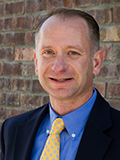 |
Co-principal Investigator: Chad Buckendahl, Ph.D., is a partner with ACS Ventures, LLC. Dr. Buckendahl has worked with a range of student assessment programs in a number of US states (e.g., NC, NE, NV, SD, WA, WY) and has advised on assessment development, validation, and related policy considerations for general, end-of-course, alternate, collection of evidence, and English language literacy assessments. As co-principal Investigator and part of the management team, he will work directly with Dr. Forte in the development and design of the project. |
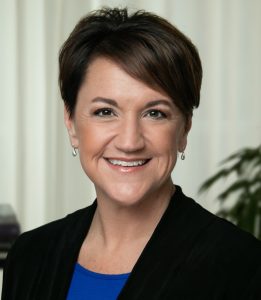 |
Project Director: Elizabeth Summers, Ph.D., is a Managing Associate at edCount, LLC, and has extensive experience in assessment and validity studies, has led and assisted with numerous local, regional, and national studies of both general and alternate assessment systems and managed various projects intended to improve, design, or redesign assessment systems around the country. As project director, Dr. Towles will provide oversight to all project tasks, including leadership for the Management Team. |
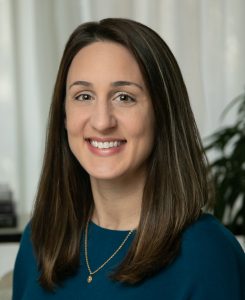 |
Deputy Project Director and Reporting Lead: Erin Buchanan, M.A., is a Senior Associate with edCount, LLC, and has extensive experience in project management. She currently works with multiple projects at edCount where she leads or assists with the development of technical documentation for the evaluation of large-scale assessment systems. As deputy project director and reporting lead, Ms. Buchanan will support the project director in providing oversight to all project phases. |
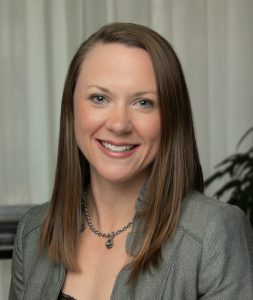 |
Assessment Literacy Specialist: Elizabeth Greninger, Ph.D., is a Managing Associate at edCount, LLC and will serve as assessment literacy specialist to contribute her expertise in facilitating workshops, webinars, and focus groups aimed at connecting state leaders with district staff and teachers via the web-based assessment literacy modules. As assessment literacy specialist, Dr. Greninger will provide direct support to the development of a series of assessment literacy modules to document the purpose, process, and research-based approach for accomplishing various SCILLSS activities. |
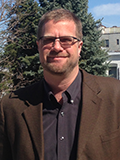 |
Lead Psychometrician: Andrew Wiley, Ph.D., is a partner with ACS Ventures, LLC. Dr. Wiley has over 15 years of experience in the education and certification/licensure fields. Dr. Wiley is active in the measurement community, and previously served on the Board of Directors for the Association of Test Publishers (ATP), as well as Chair of the National Council on Measurement in Education (NCME) Annual Award Committee. As lead psychometrician, Dr. Wiley will provide direct support to the development of state and local assessment tools and resources. |
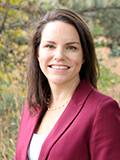 |
Psychometrician: Susan Davis-Becker, Ph.D., is a partner with ACS Ventures, LLC. She has worked with a range of testing programs, including K-12 state educational assessment and educator licensure. Additionally, she has provided general educational measurement and related policy consultation, stakeholder use of assessment score information, and has led validation research. As psychometrician, Dr. Davis-Becker will provide direct support to the development of state and local assessment tools and resources. |
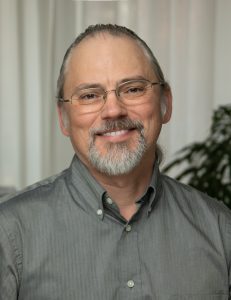 |
Science Content and Assessment Specialist: Bill Herrera, M.S., has experience as senior project lead, assessment specialist, and science content specialist. Mr. Herrera will provide science content expertise across each of the elementary, middle, and high school grade bands to develop state and local assessment tools and resources. |
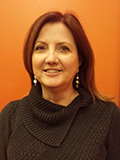 |
Science Content and Assessment Specialist: Sally Sanders, M.S., has experience in assessment project management, science content leadership, and support for science standards and curriculum implementation. As a science content and assessment specialist, Ms. Sanders will provide content expertise across each of the elementary, middle, and high school grade bands to develop state and local assessment tools and resources. |
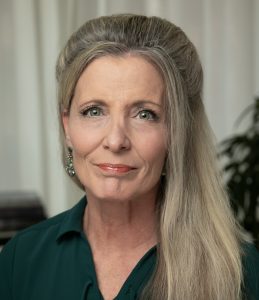 |
Science Content and Assessment Specialist: Charlene Turner, B.S., has experience as senior project lead, assessment specialist, and science content specialist. Ms. Turner will provide science content expertise across each of the elementary, middle, and high school grade bands to develop state and local assessment tools and resources. |
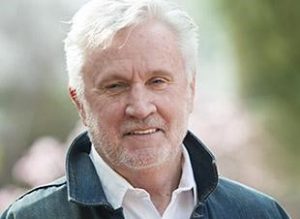 |
Principled-Design Specialist: Howard Everson, Ph.D., is a Co-Director for Assessment Research for SRI International. He leads the design and development of innovative, technology-based assessments of student proficiency in STEM-related disciplines while his research focuses on assessment design, psychometrics, design of technology-enhanced assessments, and the relationship among cognition, instruction, and assessment. Dr. Everson will provide direct support to the development of state and local assessment tools and resources. |
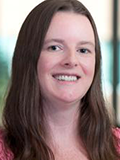 |
Principled-Design Specialist: Daisy Rutstein, Ph.D., is an educational researcher at SRI’s Center for Technology in Learning. Dr. Rutstein’s work focuses on the application of Evidence-Centered Design (ECD) to the development of technology-enhanced assessments including the development of design patterns, scenarios and items, as well as the identification and application of measurement models for scoring and scaling these tasks. Dr. Rutstein will provide direct support to the development of state and local assessment tools and resources. |
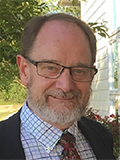 |
External Evaluator: Brent Garrett, Ph.D., is a Research Scientist with Pacific Institute for Research and Evaluation (PIRE), specializing in the evaluation of assessment-related and professional development initiatives in special education, history, mathematics, science, and has over 20 years of experience in evaluation and research. Dr. Garrett will serve as an external evaluator for the project and directly support external evaluation and reporting activities. |
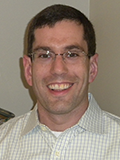 |
External Evaluator: Matthew Courser, Ph.D., is a Research Scientist with PIRE who specializes in evaluating education, professional development, and other programs designed to improve the health and well-being of families and communities. Key areas of expertise include working with the PIRE Institutional Review Board, survey design, survey sampling, data collection methodology, and performance measurement. Dr. Courser will work closely with Dr. Garrett to support external evaluation and reporting activities. |
